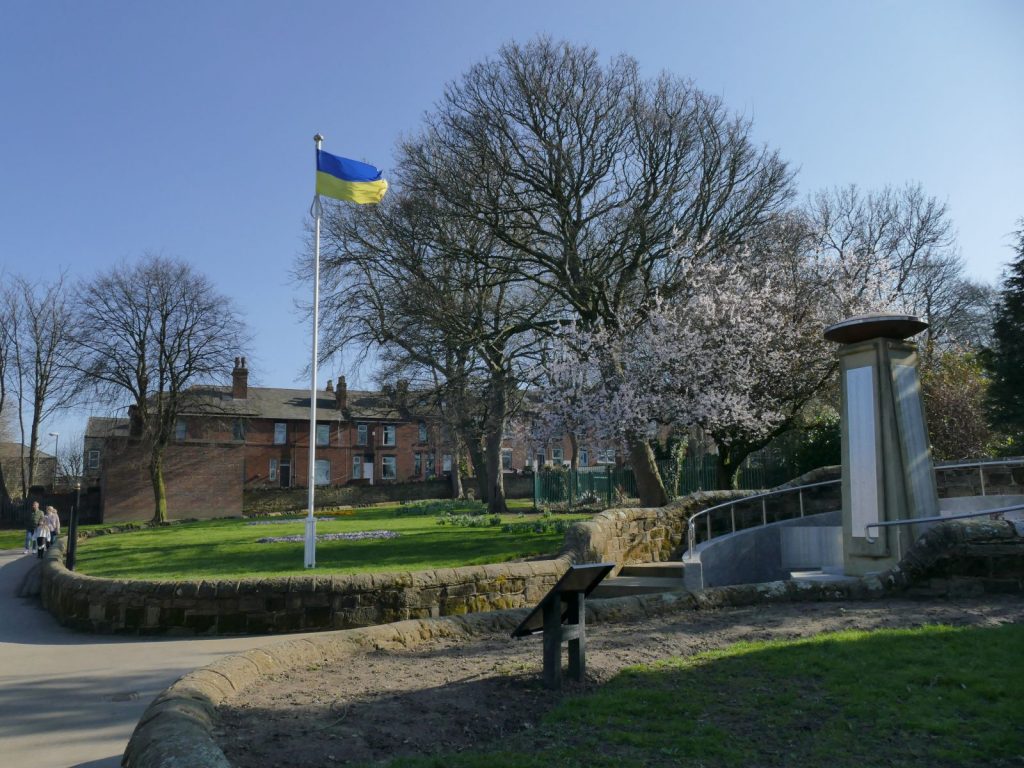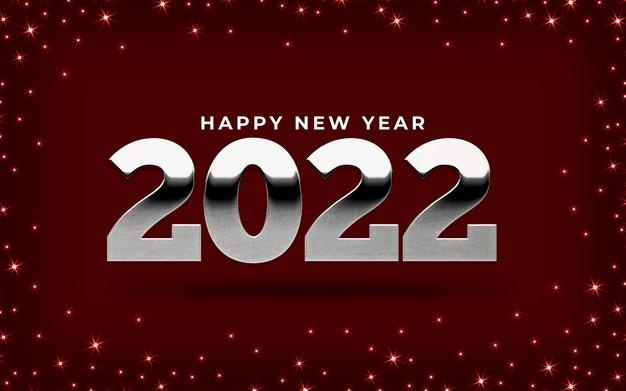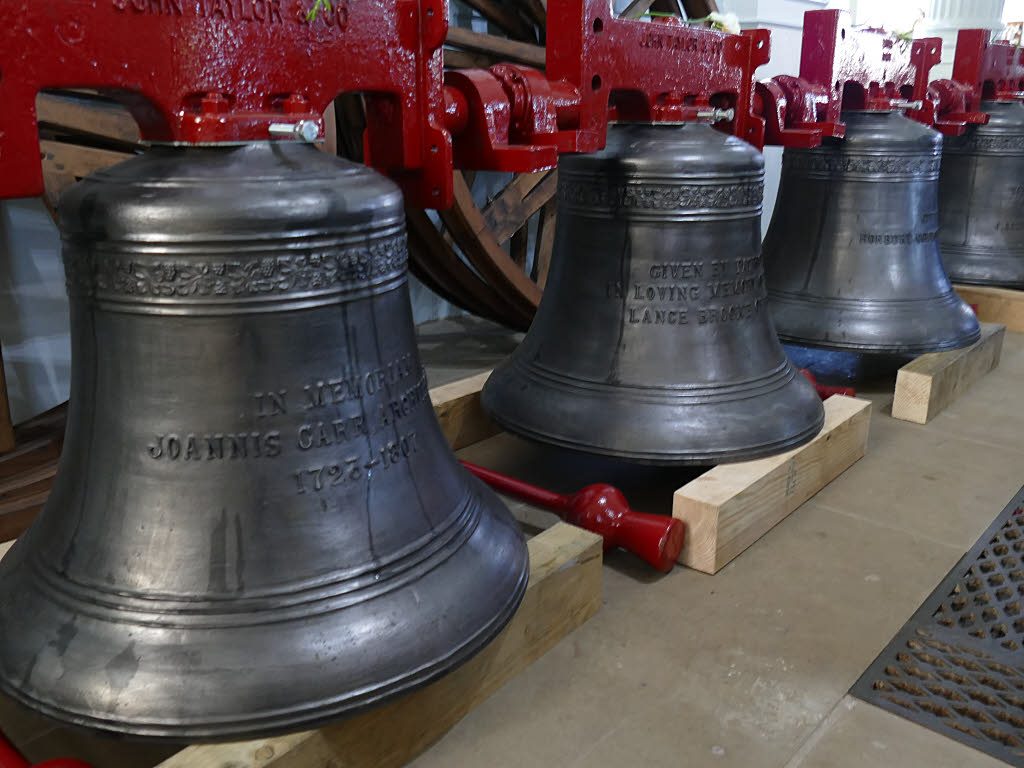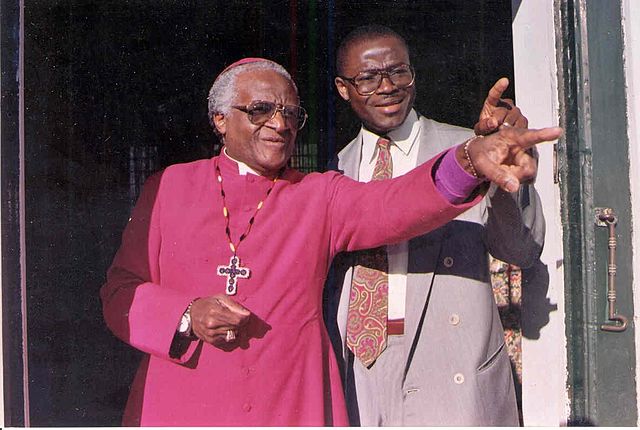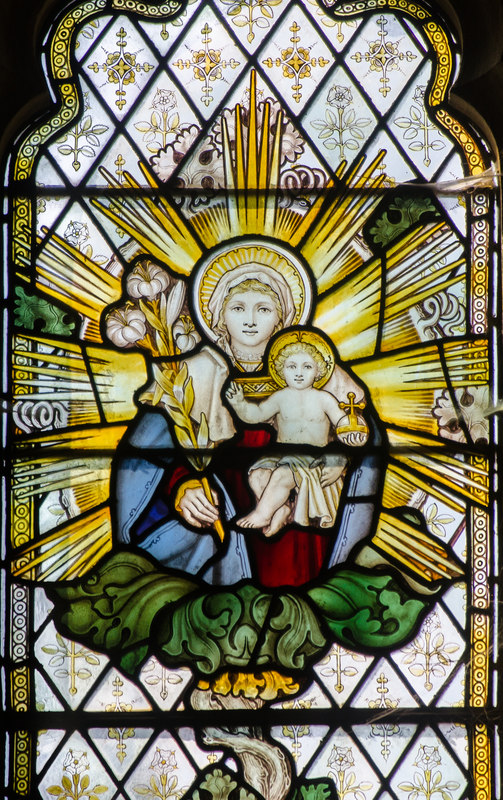Sermon for Bramley St Peter, 1 May 2022
Readings: Acts 9:1-6 / John 21:1-19

Once upon a time there was a man walking in some remote mountains, many miles from any road or town. He got lost and didn’t know which way to go. It was a hot summer and all the streams were dry, so after two days of walking he ran out of water. He knew he would die if he didn’t find water soon. So he prayed that God would send him water.
The next morning he saw a small hut or bothy and walked towards it. The door was open, but there was no one there. In fact, nothing but an old water pump set into the floor. Ah! He thought, there must be a well under this hut. So he started pumping – up, down, up, down, up, down – but no water flowed. After a couple of minutes he gave up and sat down on the floor crying, thinking he was going to die of thirst.
Just then, he saw a bottle in the corner. He went over and picked it up. It seemed to be filled with water, but there was a handwritten note tied to it. “Use this water to prime the pump”, it said. “Don’t forget to fill the bottle when you’re finished.”
Well, that gave him a whole new problem. “What do I do?” he thought. If I follow the instructions, how do I know the pump will work? The well may be dry, and I will have missed my last chance of a drink. But If I drink this one bottle, that will be the last drink I ever have.” He closed his eyes and prayed. After a few minutes he thought he heard a voice say “Read and act. Read and act”. So, with trembling hands, he opened the bottle, opened the top of the pump and poured the water into the priming chamber.
Up, down, up, down, … drip, splash. Up, down, and the water started pouring out. With a huge laugh of relief he looked up and thanked God, and drank his fill of water. He had a good night’s sleep, and drank more in the morning. Before leaving the hut, he refilled the bottle, put it back on the floor and added a note at the bottom for the next visitor: “believe me, it works”.
Source for story: https://moralstories26.com/man-lost-in-desert-leap-of-faith-story/ (altered)
We all have choices in life. Some are trivial: what colour shirt to wear, what to eat for dinner, where to go for a day out. Some are more important and will affect our future life: what subjects to study at school, which job to apply for, where we live.
One particular type of choice that we have as grown-ups is our vote – which politician we want to represent our local area. I hope that all who have the vote this week will use it to elect one of the Bramley councillors.
In all these cases, we have a genuine choice. We might listen to different people’s advice and opinion, but we have to make our own mind up. Just occasionally, though, we find that although we may seem to have a choice, there is really only one thing we can do. It might be that the person you love most asks you to marry them, and the only answer is – (yes, yes, yes)
The two Bible stories we heard today are both about people who faced an extremely important choice. As important as the one the thirsty man faced.
Saul had been very doubtful about Jesus. He didn’t believe that Jesus really was the Messiah, the saviour the Jews had been waiting for. So after Jesus was crucified, and his followers started going all round their country and beyond telling people that Jesus was alive, Saul was angry. Not content with arguing with them, he started threatening them and having some of them sent to prison. Then came his encounter on the way to Damascus in Syria. Hearing a voice that said it was Jesus, condemning him for this persecution, because every time he hurt a Christian he was hurting Christ himself.
In the blindness that followed, he was faced with the most difficult choice of his life. Either he tried to ignore what had just happened and carry on as someone who opposed and hated Christians, but maybe that would mean remaining blind for the rest of his life. Or accepting that he had been wrong, that Jesus really was alive, and that he had caused real sorrow to Jesus and real injury to his followers. What that would lead to, he could not know. But over the next few days, he came to realise that it was really no choice at all. When God sent the prophet Ananias to him, Saul was ready to accept Jesus into his life, and his blindness was at an end. He had started a new life with a new name – Paul.
Peter was faced with a similar choice. Unlike Saul, he realised while Jesus was still alive that he was the Messiah, the Son of God. But then he messed it up by running away when Jesus was arrested, then denying three times that he even knew him. Like Saul coming to realise what hurt he had caused to Jesus and his church, he was a broken man. Even after Jesus appeared to the disciples at Easter, Peter and some of the others went back to the life they had before, fishing lake Galilee. When faced with a big choice, it seems easier to ignore it and fall back on familiar routine.
But Jesus didn’t let him get away with that. He appears on the lakeside, as he had in the locked room in Jerusalem. Three time he asks Peter “do you love me”, and three times Peter replies “Yes, Lord, I love you”, as it were cancelling out the three denials. Each time Jesus responds with “feed my lambs” or “feed my sheep”, meaning that he was being invited to become the first leader of the Christian church.
What was Peter to do? Poorly educated fisherman, could he really take on the responsibility of leading a church that was soon to face persecution? Would he not be better just carrying on the life he knew? But the large catch of fish that morning had just shown him that if he listened to Jesus and believed him, he could do more with Jesus’ help than he could ever do on his own. Like the man in the hut, what seemed like an either/or choice was really no choice at all. It needed a leap of faith that would transform his situation entirely.
Many Christians can tell of a time when we faced a choice like this: maybe at a youth group or evangelistic event. Maybe during an Alpha course. Maybe by reading the Bible for ourselves or talking to Christian friends. Whatever the circumstances, we found ourselves with a choice – carry on with life as we know it, tackling all its difficulties ourselves, or throw our lot in with Jesus and his church, declare ourselves his followers and enter on a journey with an unknown ending. At that moment, often there is no real choice. The only answer to Jesus is “Yes yes, yes.”
If you haven’t yet come to that decision point in your journey of faith, or if you think that moment might be now, listen to some familiar words of Jesus: “Let anyone who is thirsty come to me, and let the one who believes in me drink. As the scripture has said, “Out of the believer’s heart shall flow rivers of living water.” Listen, and act. And refill the bottle for others.
1279 words
